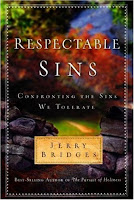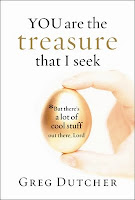Here's an interview I did for in tandem, a blog for ministry wives, about my life as a ministry wife.Can you tell us a bit about yourself, your husband and ministry etc?When I was in my teens I prayed to marry a minister! I knew I wanted to spend my life doing Christian ministry, and that’s how I thought you’d go about it!! God answered my prayer: my husband Steve isn’t quite a “minister” as I meant it then, but he is a student worker at a university in Melbourne.
Steve and I got married in our early twenties, and we had our first child when I was 30. We have four children: Elizabeth (11), Ben (9), Thomas (6) and Andrew (3). I’m 42, and thinking hard about what ministry and family life will look like during the next season of life when my kids are all at school.
Steve and I studied Arts at Melbourne Uni – but we were really studying Christian ministry, learning on the job at the Christian Union. Steve was part of the first team to ever do an MTS ministry apprenticeship in Victoria! Then it was on to youth ministry at a suburban church for a few years, theological study for Steve, and a PhD in church history/theology for me.
Once I’d finished studying I worked as a student worker at a very new Christian Union for a year or so until Elizabeth was born. Steve joined me as the first senior staff worker at that uni and has been there for 12 years. As long as they want him, he has no plans to move!
Here’s how I spend my time: I love Steve; love, teach and train our children; care for our home; lead a Bible study for mums at our church; teach and encourage women when I get the chance; and do lots of writing for
The Briefing,
Sola Panel and my blog,
in all honesty.What have been some of the joys of being in ministry?They are far, far too many to mention! But here are a few:
- teaching the Bible and watching women’s eyes light up when they understand something new about God and how to live for him
- passing on the wonderful news about what it means to live as a Christian woman to younger women (Titus 2:3-5 - see my article woman to woman)
- watching with great joy as Steve teaches the Bible, trains leaders, and cares for God’s people
- seeing the young people Steve and I taught at uni grow to become men and women who care for their families, serve in their churches, and keep growing God’s kingdom. It’s an awesome privilege to help shape young people into the men and women God wants them to be!
What have been some of the challenges?Again, too many to mention! But here are some.
- University work has particular challenges, as the work is very erratic – frantically busy during some months and relatively quiet during others. You do adjust, but it’s not easy!
- Full-time ministry is intensely demanding, especially when you’re the senior person. Steve is careful not to let the burden fall too heavily on others, but that means it often falls very hard on him. It’s hard to see him sick and exhausted when it all becomes too much for him.
- The hardest struggle for me is feeling torn between the most important ministry in my life – my family – and all the other ministries I’d love to do: teaching, writing and encouraging women. Steve supports and encourages me in doing what I can. But I’d always love to do more!
How does partnership in serving God with your husband work out in practice for you?I provide a quiet place of refuge for Steve in the evenings. Steve is an introvert, so I’ve learned not to expect him to tell me in detail about his day, but to give him space to relax as we love and enjoy one another.
I joyfully get involved in some aspects of Steve’s ministry: I lead a seminar for our female graduates every year, welcome the staff team into our home for their meetings, offer hospitality to people who drop in, and mentor or encourage the women on the staff team when I get the chance.
I do some humdrum things which don’t excite me but which are important to Steve’s ministry – and, I must admit, do them far less cheerfully than I should! – like finances, editing and cooking for groups.
I pray. Nearly every time I pray, at the top of my list is Steve’s leadership, godliness, purity and prayerfulness both at uni and in our home. I also pray regularly for his leadership team and the people under his care.
What's the one piece of advice you would give to a younger woman about to become a 'ministry wife'?You’re about to embark on a great adventure! Don’t lead separate lives: get involved and use your gifts, whatever they may be – hospitality, service, encouragement, teaching, etc. - to love your husband and help him in his ministry.
The way you help your husband and serve God’s people won’t look like any other ministry wife’s: you and your husband have unique personalities, energy levels, needs, gifts and opportunities. Learn from other ministry wives, but don’t compare yourself or your husband.
The world tells women that we need our own patch, something which makes us feel important: independent work, study or ministry. Yes, you may work or study or do some separate ministries – that’s fine! – but your life is not about “finding your identity” or “fulfilling yourself”.
God has put you on this earth and married you to this man so you can help your husband as you further the cause of the gospel together (whether in paid ministry or not!). There will be tough times ahead when you grow weary and discouraged, as well as times of joy. Your refuge is God, so keep your eyes fixed on Jesus, and don’t give up reading the Bible, praying, and getting to know him. Be a woman of God who is strong in the gospel and growing in grace and godliness. Then you will be all that God and your husband need you to be.
This interview appeared first at in tandem.
 I thought I'd tell you what I've learnt about myself and ministry today in light of preparing to host tomorrow night's event:
I thought I'd tell you what I've learnt about myself and ministry today in light of preparing to host tomorrow night's event:







+flickr.jpg)

























